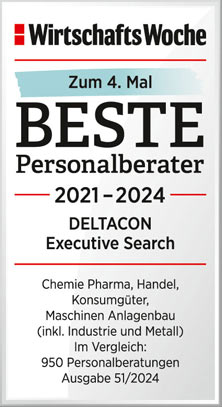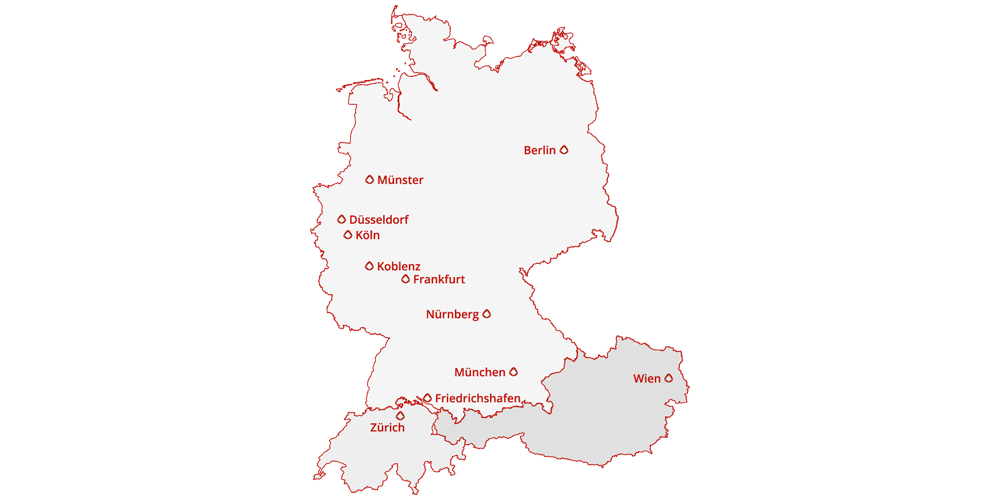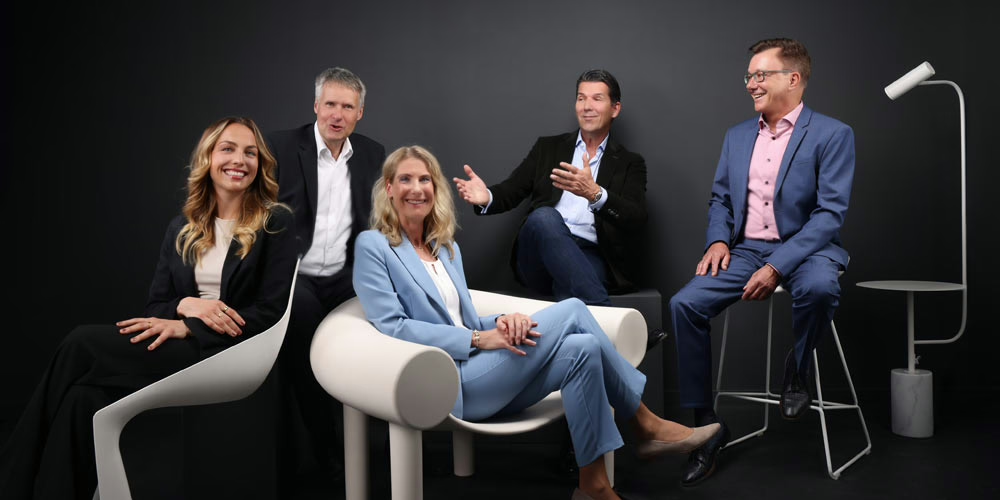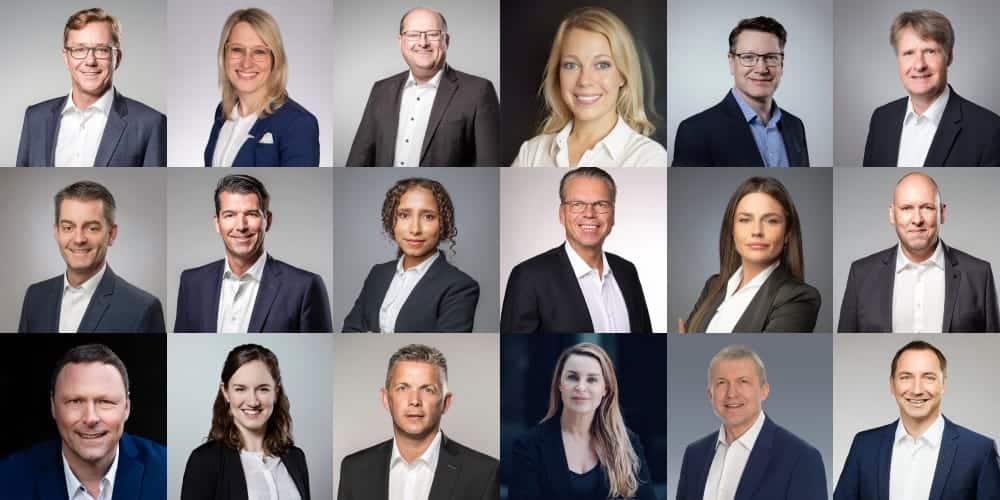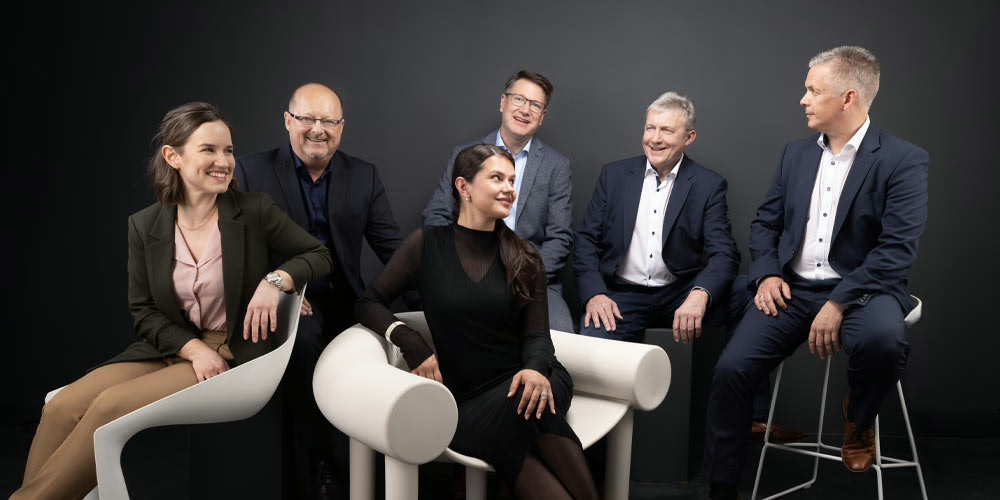Quo Vadis HR – The Future with AI
In a future where AI technology has transformed traditional HR functions, the HR office evolves into a hub of strategic planning and human-centric decision-making. Here’s a detailed view of how AI-driven tasks will change HR functions and the new role of HR professionals.
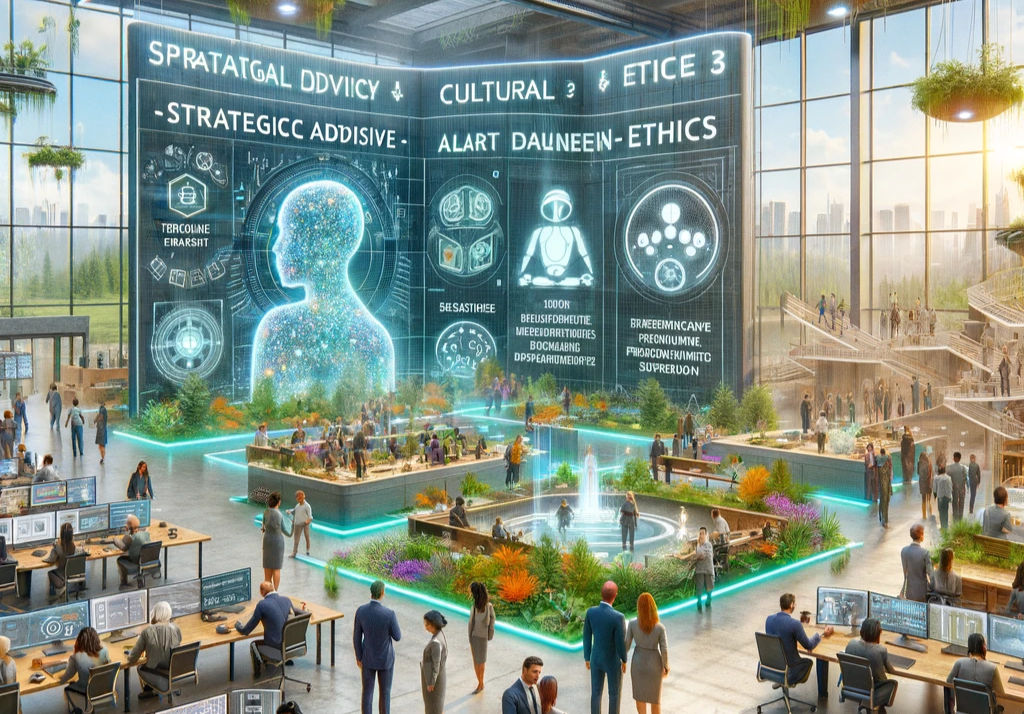
AI-Driven Tasks Transformation
Posting Job Ads:
AI Integration: AI algorithms will predict staffing needs by analyzing company data trends, forecasting project demands, and identifying skills gaps. These insights will enable the automated posting of job ads on multiple platforms, targeting candidates who match the company’s culture and required skill set.
Impact: This reduces the time HR spends on manual job postings and increases the quality and reach of job advertisements, attracting a more suitable candidate pool.
Analyzing Resumes:
AI Integration: Advanced AI systems will sift through thousands of resumes in seconds, using natural language processing (NLP) and machine learning to match qualifications, experiences, and skills with job requirements. Beyond matching, AI can also assess candidates‘ soft skills and cultural fit by analyzing their digital footprints.
Impact: This significantly reduces the time taken to shortlist candidates, allowing HR to focus on deeper aspects of candidate selection.
Conducting Interviews:
AI Integration: AI-powered avatars can conduct initial screening interviews, using sentiment analysis to gauge candidates‘ enthusiasm, reliability, and fit. Virtual Reality (VR) and Augmented Reality (AR) technologies could offer immersive job trial experiences, allowing candidates to demonstrate their skills in simulated environments.
Impact: This approach standardizes the initial screening process, enabling HR to devote time to more personalized, in-depth interviews for shortlisted candidates.
Managing Employee Benefits:
AI Integration: AI systems will manage and personalize employee benefits, using data analytics to tailor benefits packages to individual employee needs. Chatbots and virtual assistants will provide instant answers to employee queries about benefits, policies, and procedures.
Impact: This automation leads to a more personalized employee experience and frees HR professionals from administrative tasks to focus on employee engagement and well-being strategies.
The New Role of HR Professionals and HR Leaders
With the automation of routine tasks, HR professionals will pivot towards roles that require human judgment, empathy, and strategic thinking:
- Strategic Advisor: HR will play a key role in shaping company strategy, using insights derived from AI about workforce trends, talent needs, and employee satisfaction.
- Cultural Steward: Ensuring that AI adoption aligns with company values and culture, fostering an inclusive and engaging work environment.
- Talent Developer: Focusing on personal development, career pathing, and succession planning, HR will leverage AI insights to identify and nurture talent, customizing learning and development programs.
- Ethics Guardian: Overseeing the ethical use of AI in HR practices, ensuring that AI tools are used responsibly, safeguarding employee data privacy, and preventing bias in hiring and evaluations.
- Change Manager: Leading organizational change initiatives, helping employees adapt to new technologies, and ensuring that the human workforce and AI systems complement each other effectively.
In this future, HR departments will become more strategic, focusing on creating a positive employee experience, fostering a strong company culture, and ensuring that the organization and its employees thrive in an AI-enhanced workplace.
Von Thomas Heeger
Personalberater für Pharmaindustrie, Medizintechnik und Diagnostik
Thomas Heeger ist Gründungspartner von DELTACON und Managing Partner von DELTACON an unserem Standort in der Schweiz in Zürich. Sein Competence-Center umfasst den Life Science Bereich mit den Branchen Pharmaindustrie, Medizintechnik und Diagnostik. Als „Brachen-Insider“ mit mehr als 20 Jahren Management- und Leadership-Erfahrung in führenden Unternehmen kennt er das Business in internationalen Konzernen, deren Filialen, aber auch die Bedürfnisse und Thematik in innovativen Life Science Start-ups.
